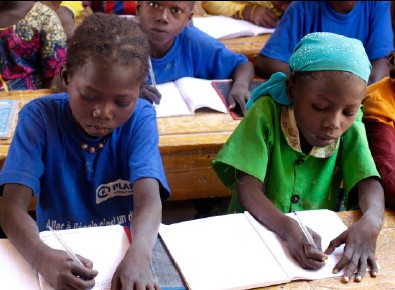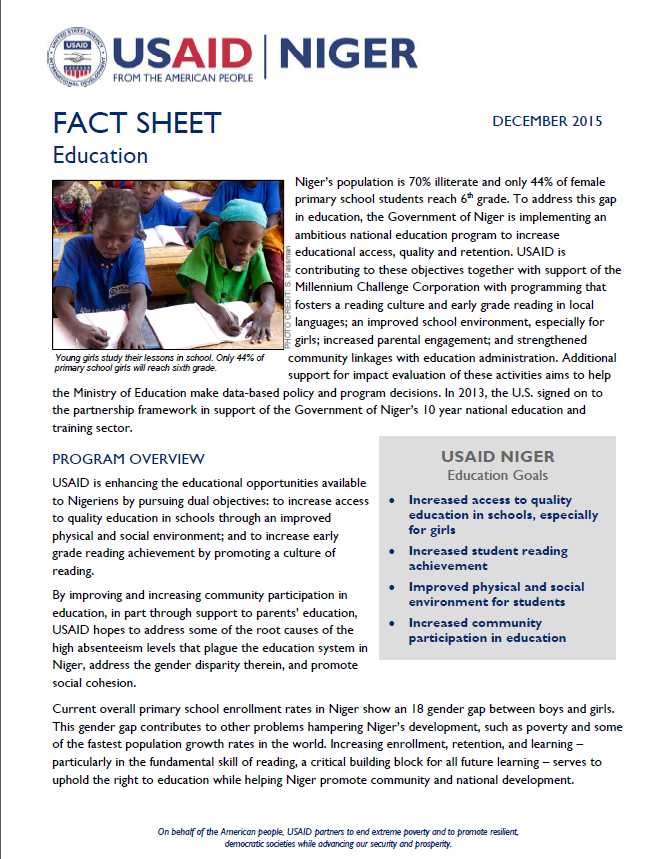
Niger’s population is 70% illiterate and only 44% of female primary school students reach 6th grade. To address this gap in education, the Government of Niger is implementing an ambitious national education program to increase educational access, quality and retention. USAID is contributing to these objectives together with support of the Millennium Challenge Corporation with programming that fosters a reading culture and early grade reading in local languages; an improved school environment, especially for girls; increased parental engagement; and strengthened community linkages with education administration. Additional support for impact evaluation of these activities aims to help the Ministry of Education make data-based policy and program decisions. In 2013, the U.S. signed on to the partnership framework in support of the Government of Niger’s 10 year national education and training sector.
Program Overview
USAID is enhancing the educational opportunities available to Nigeriens by pursuing dual objectives: to increase access to quality education in schools through an improved physical and social environment; and to increase early grade reading achievement by promoting a culture of reading.
Niger - Education fact sheet ![]() (pdf - 174k)
(pdf - 174k)
By improving and increasing community participation in education, in part through support to parents’ education, USAID hopes to address some of the root causes of the high absenteeism levels that plague the education system in Niger, address the gender disparity therein, and promote social cohesion.
Current overall primary school enrollment rates in Niger show an 18 gender gap between boys and girls. This gender gap contributes to other problems hampering Niger’s development, such as poverty and some of the fastest population growth rates in the world. Increasing enrollment, retention, and learning – particularly in the fundamental skill of reading, a critical building block for all future learning – serves to uphold the right to education while helping Niger promote community and national development.








Comment
Make a general inquiry or suggest an improvement.